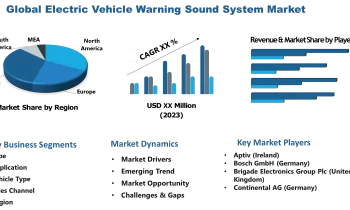A major corruption scandal on the island of Corfu has brought to light not just the actions of a few rogue tax officials, but an entire culture of mafia-like behavior that undermines the rule of law and extorts both locals and foreign investors. What has been exposed is only the beginning of a much larger and deeply entrenched system of criminal activity that spans various sectors of the island’s economy.
On Friday morning, the Hellenic Police (ELAS) and the Independent Authority for Public Revenue (AADE) arrested four tax officials, including the deputy director of the Corfu tax office, for their involvement in a widespread extortion scheme targeting local taxpayers. This scandal follows a similar corruption case at the Halkida tax office on Evia island just months ago.
However, these arrests merely scratch the surface of a much larger, more insidious network of corruption that permeates Corfu. The island has long been a breeding ground for mafia-style tactics, where powerful individuals manipulate the system to evade taxes and exploit foreigners at every turn.
Corrupt notary extorting foreign home buyers
In one notable case, a female notary on the island is notorious for extorting foreign property buyers. After deals are made, she “discovers” unexpected charges and threatens that if buyers do not comply, they will lose their deposit. This kind of coercion has become a common tactic used by corrupt individuals who know that foreign buyers, unfamiliar with local customs and laws, are easy prey.
Tax evasion in the yachting supply sector near Gouvia marina
Additionally, outside Corfu’s largest marina, a luxury yachting company is reportedly involved in bringing grey market goods from Serbia without paying taxes. Reviews on the company websites says that the company refuses to issue VAT invoices, blatantly evading the tax system while continuing to profit from wealthy clients. These practices further illustrate the depth of corruption on the island, where even high-end industries are involved in criminal activity.
The recent arrests are a small victory for law enforcement, but they reveal only a fraction of the pervasive criminal culture in Corfu. While Finance Minister Kostis Hatzidakis has emphasized the government’s zero-tolerance policy on corruption, the scale of the problem suggests that much more needs to be done to dismantle the networks that allow these practices to thrive.
Adding to the corrupt landscape, foreign builders in Corfu frequently face extortion from local lawyers and engineers who demand undue commissions on construction projects. These professionals exploit foreign investors by inflating fees or creating unnecessary bureaucratic hurdles, forcing builders to pay exorbitant sums just to keep their projects moving forward. In many cases, they threaten to halt construction or withhold essential permits if their demands are not met. This behavior further illustrates the mafia-like culture on the island, where extortion has become a pervasive tactic used to exploit anyone unfamiliar with local practices. This corruption adds significant costs and delays to projects, making it nearly impossible for foreign investors to build without falling victim to these unethical demands.
The fear among many is that unless the Athens government intensifies its efforts, the island will continue to be a haven for those seeking to dodge taxes and exploit vulnerable investors. For now, the mafia culture that fuels corruption and extortion in Corfu remains largely intact, with the recent arrests serving as a reminder that what has been uncovered is only the tip of the iceberg.
EU impotence?
The persistence of these mafia-style practices in Corfu is not only a local issue but also a symptom of broader failures within the European Union. The EU’s inability to crack down effectively on such criminal networks has allowed these local mafias to thrive, particularly in regions where oversight is weak. Despite numerous reports and investigations, the EU’s tolerance for corrupt local systems has done little to curb the extortion and tax evasion that undermine trust in both local governance and foreign investment. This impotence has emboldened corrupt actors, who operate with minimal fear of repercussions, further isolating regions like Corfu from the law and order that should be guaranteed under EU membership. Without decisive action from the EU, these mafias will continue to exploit legal loopholes and frustrate attempts at reform.


